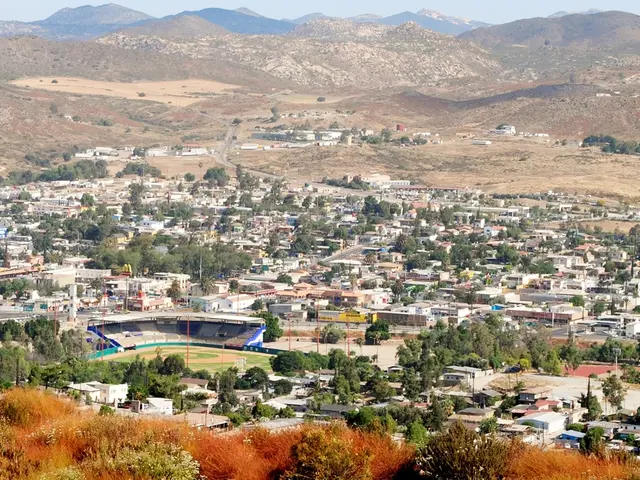Bucharest ranked among European cities with inadequate child-friendly transportation infrastructure, according to a research study.
Bucharest ranks 34th out of 36 European cities in terms of urban mobility and child safety, according to a study by the organization Clean Cities, as reported by the 2Celsius Association. The study evaluated three indicators that align with United Nations and expert recommendations for child-friendly cities: school streets near primary schools, protected bike lanes, and urban speed limits of 30 km/h, which reduce pollution and accidents. Bucharest received a score of 2.2/30 (grade F) in the assessment.
The 2Celsius Association stated in a press release that Bucharest has zero school streets near its 169 primary schools, whereas nearly 90% of Paris's road network operates under the 30 km/h limit, and protected bike lanes in Bucharest amount to just 1% of the city's street network, compared to 30 times more in Helsinki.
The ranking, which includes cities like Amsterdam, Antwerp, Brussels, Lyon, and Helsinki, is based on data gathered by Clean Cities in collaboration with NGOs and local authorities from the participating countries.
Paris is regarded as the best European city for cycling and independent mobility for children, despite past issues. The French capital demonstrates that changes are possible, according to Barbara Stoll, senior director at the Clean Cities Campaign, in the press release.
Overall, ten cities have no school streets at all, and most places where they exist have restrictions only during entry/exit hours, not as permanent pedestrian zones. In five cities, less than 10% of streets have a 30 km/h limit, and protected bike lanes remain scarce, typically accounting for only 17% of the road network in the 36 analyzed cities.
However, despite Bucharest's current position, 2Celsius experts believe the city has the potential for significant progress in the next three years in Europe's race for child-friendly mobility. Efforts like the "Bucharest, City of Parents" study launched by HILS Development, which focuses on understanding the urban living needs of parents and children, and social responsibility initiatives promoting urban biodiversity and green solutions, indicate Bucharest's commitment to family-centric urban development.
Sources:
[1] Clean Cities. (2023). Child-Friendly Cities Index 2023. Retrieved from https://cleancities.eu/publications/childfriendly-cities-index-2023/
[2] 2Celsius Association. (2023). Press Release: European City Ranking Reveals Challenges in Child-Friendly Mobility. Retrieved from https://2celsius.ro/press-releases/european-city-ranking-reveals-challenges-in-child-friendly-mobility/
[3] HILS Development. (2025). Bucharest, City of Parents. Retrieved from https://hils-development.ro/buh/bucurestii-tai-parinti/
[4] HILS Development. (2025). Corporate Responsibility. Retrieved from https://hils-development.ro/buh/responsabilitate-corporata/
[5] European Union Navigator. (2023). Child-Friendly Cities. Retrieved from https://www.euronavigator.ro/page/child-friendly-cities
[Photo source: Masezdromaderi | Dreamstime.com]
- To improve Bucharest's urban mobility and child safety, the 'Bucharest, City of Parents' study by HILS Development, focusing on understanding the urban living needs of parents and children, could significantly contribute to family-centric urban development and foster sustainable living.
- Sustainable living, a key aspect of lifestyle, can be promoted through initiatives like urban biodiversity and green solutions, as demonstrated by social responsibility efforts in Bucharest.
- The science of urban planning and environmental-science play a crucial role in creating child-friendly cities, as evidenced by the 3 indicators (school streets, protected bike lanes, and urban speed limits) evaluated in the Clean Cities Study.
- The finance industry and the health-and-wellness sector can collaborate to emphasize the benefits of fitness-and-exercise, independent mobility, and a balanced lifestyle for children's growth and development.
- As Bucharest strives for progress in its child-friendly mobility, transportation infrastructure, such as protected bike lanes, will be essential to ensure a healthy environment for children and promote an eco-friendly lifestyle in alignment with the principles of environmental-science and sustainable-living.







